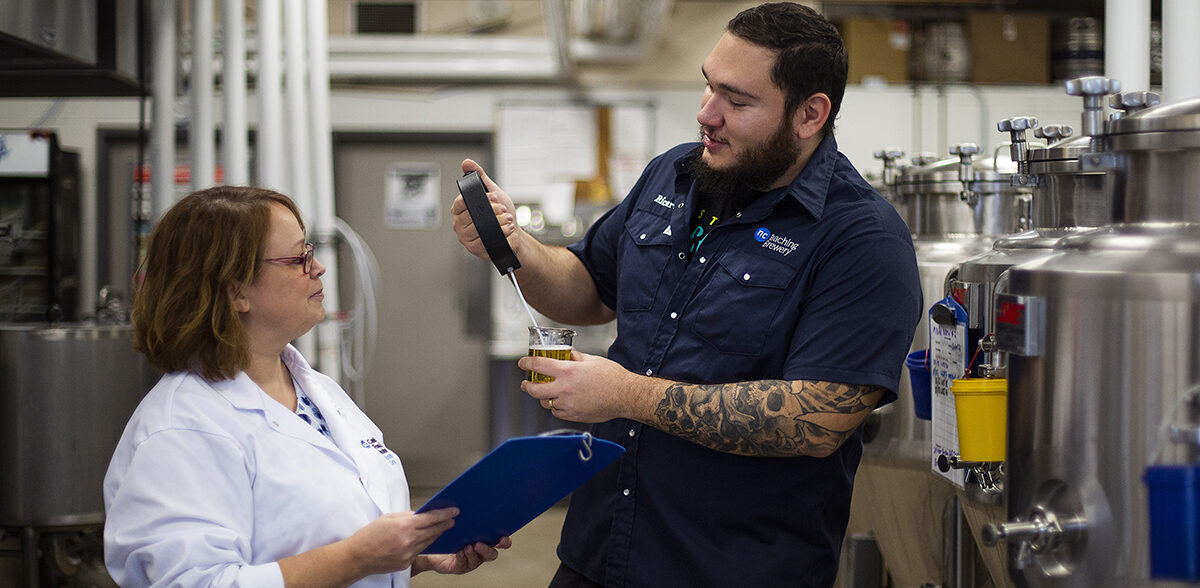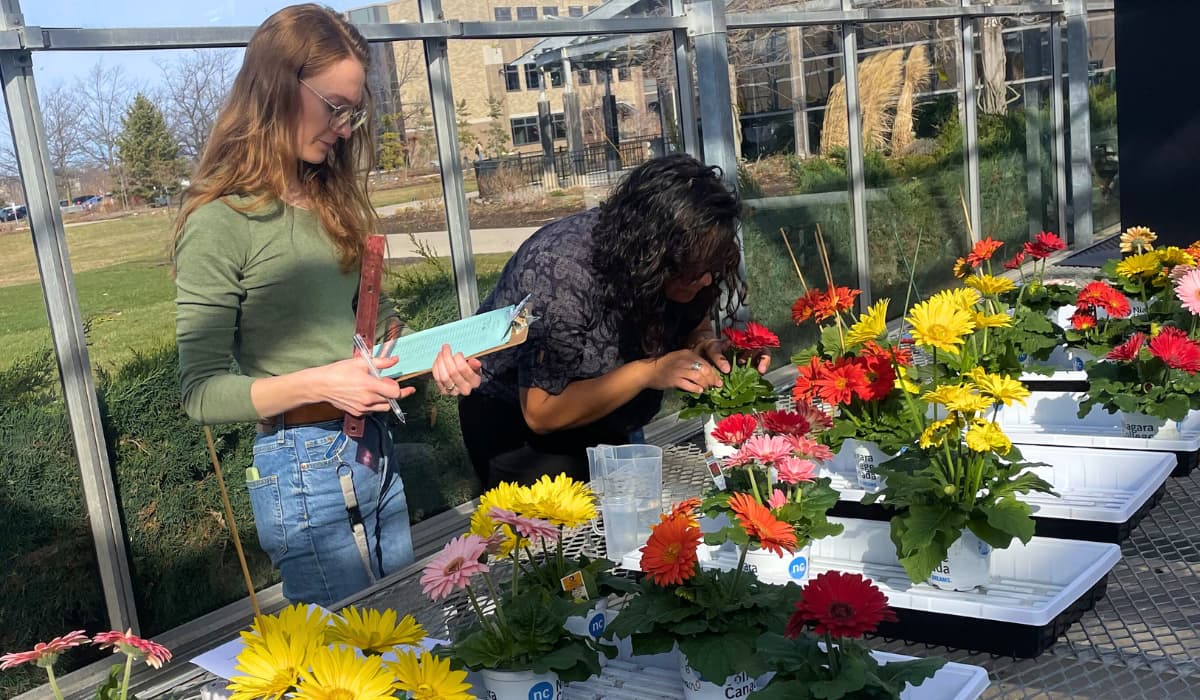SOLUTION
EcoWool required the experience of the Horticultural and Environmental Sciences Innovation Centre (HESIC) team in the evaluation of sheep wool use in greenhouse crops, and potential use in the Canadian horticulture industry. The HESIC team at Niagara College carried out a research trial evaluating the potential use of EcoWool sheep wool pellets as a media amendment to grow basil (Ocimum basilicum ‘Crispum’), strawberry (Fragaria × ananassa ‘Albion’), and tomato (Solanum lycopersicum ‘Tiny Tim’) crops.
Incorporation of EcoWool pellets with greenhouse potting media increased pH and E.C. of the media, proportional to increasing pellet rate. In general, plants grown in media containing 5 g/L and 10 g/L EcoWool pellets/media performed better than the control. Increasing rates of EcoWool pellets over the rate of 10 g/L were found to have a negative impact on plant health, yield, and fruit quality. Media amended with EcoWool pellets required the addition of soluble fertilizers, as demonstrated by all measured growth parameters lagging in the pots which received no additional fertilizer. EcoWool pellets did appear to provide minor nutritional value to the plants, notably in the form of nitrogen, as measured in both soil and plant tissue analyses.
EcoWool has developed a process of processing the sheep wool, turning it into pellets for use in agriculture – whether it be home gardeners or commercial growers. Together with Niagara College, EcoWool is seeking to expand research and knowledge into the use of sheep wool in horticulture.




